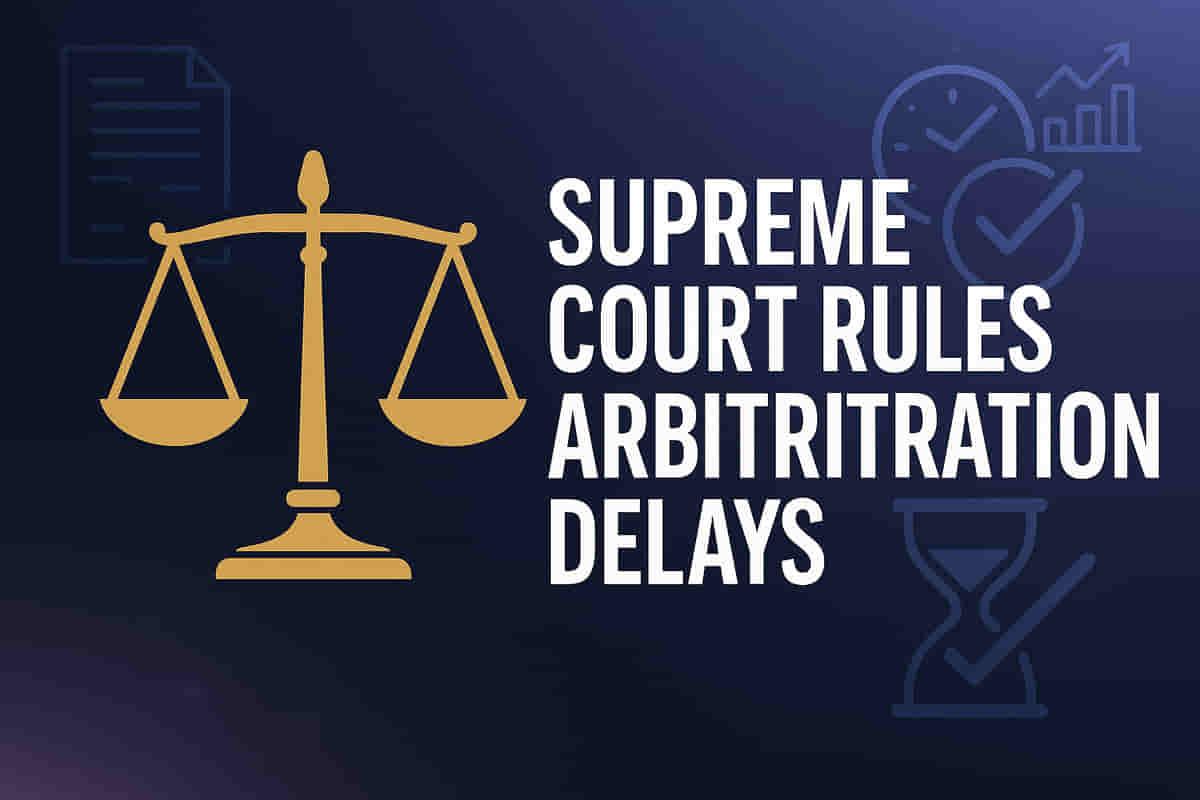Supreme Court Overturns Arbitration Award Due to Undue Delay, Cites Public Policy Violation
Law/Court
|
1st November 2025, 6:00 AM

▶
Stocks Mentioned :
Short Description :
Detailed Coverage :
The Supreme Court has ruled that an arbitral award can be set aside if it is passed after an undue and unexplained delay, and fails to resolve the underlying dispute. This decision was made in the case of Lancor Holdings Limited v. Prem Kumar Menon and ors.
Justices Sanjay Kumar and Satish Chandra Sharma stated that while delay alone is not enough to invalidate an award, unexplained delays that negatively affect the outcome render the award contrary to public policy. Arbitration's core purpose is swift resolution of disputes, a principle violated when awards are delayed and ineffective.
In this specific case, an arbitrator delivered an award after nearly four years, which did not resolve the 21-year-old property dispute. The arbitrator even suggested parties pursue further litigation or fresh arbitration, despite altering the parties' positions. The Court found this conduct unacceptable and the award "patently illegal."
The dispute originated from a 2004 Joint Development Agreement for a commercial building in Chennai. The arbitrator, appointed in 2009, reserved his verdict in 2012 but pronounced it in 2016, almost four years later. The award declared certain sale deeds illegal but rejected all claims, directing parties to seek further legal recourse.
The Supreme Court, instead of remanding the case, invoked Article 142 of the Constitution to direct a ₹10 crore settlement. This settlement includes forfeiting the developer's ₹6.82 crore security deposit and paying ₹3.18 crore as compensation to landowners, aiming to end the protracted litigation efficiently.
Impact: This ruling reinforces the importance of timely dispute resolution in arbitration and emphasizes that delays leading to ineffective outcomes can lead to awards being overturned. It signals to arbitrators the need for efficiency and adherence to the spirit of arbitration, potentially influencing how such cases are managed by businesses and legal professionals in India.
Rating: 7/10
Definitions: * Arbitral Award: A final decision made by an arbitrator or a panel of arbitrators in a dispute. It is legally binding on the parties involved, similar to a court judgment. * Public Policy of India: This refers to fundamental principles of law and morality that underpin the administration of justice in India. An award that conflicts with these principles is considered void.